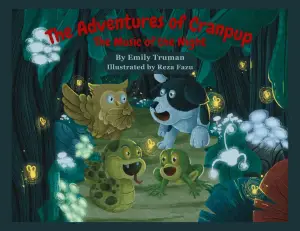I recently finished a deeply moving novel titled "Finding a Way to Be Okay," and it touched my heart in ways I didn’t expect. As someone who enjoys stories centered around friendship, mental health, and the complexities of adolescence, I was instantly drawn to this book after seeing it mentioned as a New York Times bestseller and a BookTok sensation. The premise of Samantha McAllister’s struggle with Purely-Obsessional OCD intrigued me, and I was eager to see how her journey would unfold.
From the very first pages, I was captivated by Sam’s dual existence as a seemingly popular teenager and as someone grappling with unrelenting worries and dark thoughts. The way the author illustrated her inner turmoil while navigating the treacherous waters of high school dynamics was both authentic and relatable. I found myself rooting for Sam as she met Caroline and explored the enchanting world of Poet’s Corner, a space where her hidden self could thrive.
One of the standout strengths of the novel is its honest portrayal of mental illness. I particularly appreciated how the author conveyed Sam’s internal struggles without sensationalism. This aspect resonated with me; it created a sense of understanding and empathy not just for Sam, but also for others dealing with similar issues. Additionally, the relationships formed within Poet’s Corner provided a refreshing contrast to Sam’s friendships with her toxic popular crowd. Sam’s developing bond with Caroline and the guitar-playing poet was beautifully illustrated, showcasing first love and friendship in a raw, genuine manner.
However, the book isn’t without flaws. While I loved the characterization of Sam and Caroline, I found some of the supporting characters to be somewhat one-dimensional. At times, their motivations felt underexplored, which left me yearning for a more nuanced portrayal of the dynamics within Sam’s life. Moreover, the pacing faltered in a few spots, especially in the middle where I felt the narrative dragged a bit. While the emotional depth kept me engaged, there were moments when the story seemed to stall, making it hard to maintain momentum.
Despite these drawbacks, "Finding a Way to Be Okay" exceeded my expectations in many ways. The exploration of mental health was done with sensitivity and care, which is often hard to find in young adult fiction. The author’s ability to weave humor and heartache seamlessly was impressive, making me laugh even during the most poignant moments. I distinctly remember how the phrase “If you could read my mind, you wouldn’t be smiling” encapsulated the book’s core—a powerful reminder of the hidden battles many face.
In conclusion, I wholeheartedly recommend this novel to readers who appreciate heartfelt stories about mental health, friendship, and self-discovery. While it isn’t flawless, the poignant moments and relatable characters make it a valuable addition to the young adult genre. It left me feeling more connected to the struggles we all face, reminding us that it’s okay to seek help and support along the journey. If you’re looking for a book that will tug at your heartstrings and resonate long after the last page is turned, this one is definitely worth the read!
“Discover the transformative journey of self-acceptance and friendship in Every Last Word.” >>








